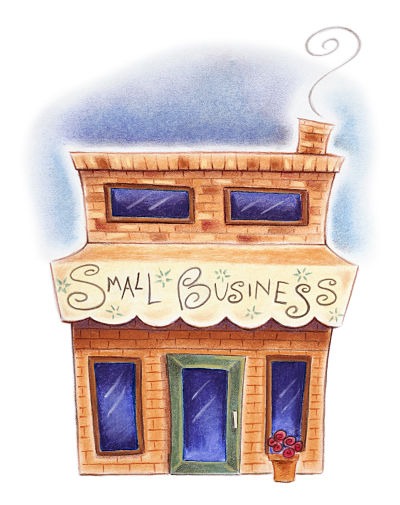When real estate is owned by the business or business owner
You own a business. You or the business also own the real estate used by the business. You do not have to include this real estate when selling your business. Retaining or selling the real estate separate from the business has its advantages.
Often the business itself is sold and a lease then put in place at market rent. This reduces the amount of capital that a potential purchaser requires and creates a wider market for the business. The owner can then sell the building with the lease in place and the purchaser does not have to be someone who wants to run or own the business that it houses.
As a result, there is a larger group of prospective buyers and the building sells for a higher price than could have been realized if sold along with the business. The goal is to sell the business before selling the real estate, or if it is listed in combination with the business, at the same time.

Using real estate for capital
A business owner who wants to extract some of the capital or equity from their real estate to invest in the growth of their business can:
- mortgage the building to its maximum—usually some 70 to 75% of appraised value—and use the funds in the business;
- sell the building and lease it back at market rent, giving them more capital to invest in their business; they will typically get 100% of the building’s value.
We generally do not recommend the sell and lease option, as the business owner will no longer be participating in the equity growth resulting from increased real estate values.
Retaining real estate as an investment
In many cases, the seller will be looking for an investment for the proceeds of the sale of their business and retaining the real estate may be the best investment they can make.
In today’s market, commercial/industrial real estate increases in value at an average of 4% to 8% per year and in some locations, more. Interest rates are currently averaging 4% to 5%, leaving a spread of 1% to 4%. If the market rent is sufficient to cover the mortgage payments and the building is increasing in value by 8% per year with the mortgage 75% of the building value, then the return on equity would be 32%.
Given that real estate is a relatively low-risk investment, this is as good as it gets—no cash flow but great return on investment (ROI). In a more conservative calculation, the spread might be at low as 2% and the mortgage as low as 66% of value, resulting in an ROI of 6%—still better than most secure investments but, again, no cash flow.
Protecting intellectual property
Business owners also need to protect their intellectual property (IP). Too often we find that our clients do not own their name or logo and have not protected their web presence or other intellectual property they own.
The cost of protection is generally not high, but the cost of not owning it when you are selling the business can be much greater. It may result in making the business unsalable.
Whether patents, copyrights, trademarks, or trade secrets, your company’s intellectual property may be the most valuable asset you have. Intellectual property can be any proprietary information— anything from a particular manufacturing or sales process to plans for a product launch, a trade secret like a recipe or formula, or a list of the countries in which your patents are registered.
The World Intellectual Property Organization provides this definition:
“Intellectual property (IP) refers to creations of the mind, such as inventions; literary and artistic works; designs; and symbols, names and images used in commerce.”
CSO Online adds:
“IP includes but is not limited to proprietary formulas and ideas, inventions (products and processes), industrial designs, and geographic indications of source, as well as literary and artistic works such as novels, films, music, architectural designs and web pages.”
This article is published in our Insider TIps on Selling a Business in Canada. For a free e-version of this book, just click on the notice to the right of this page.



